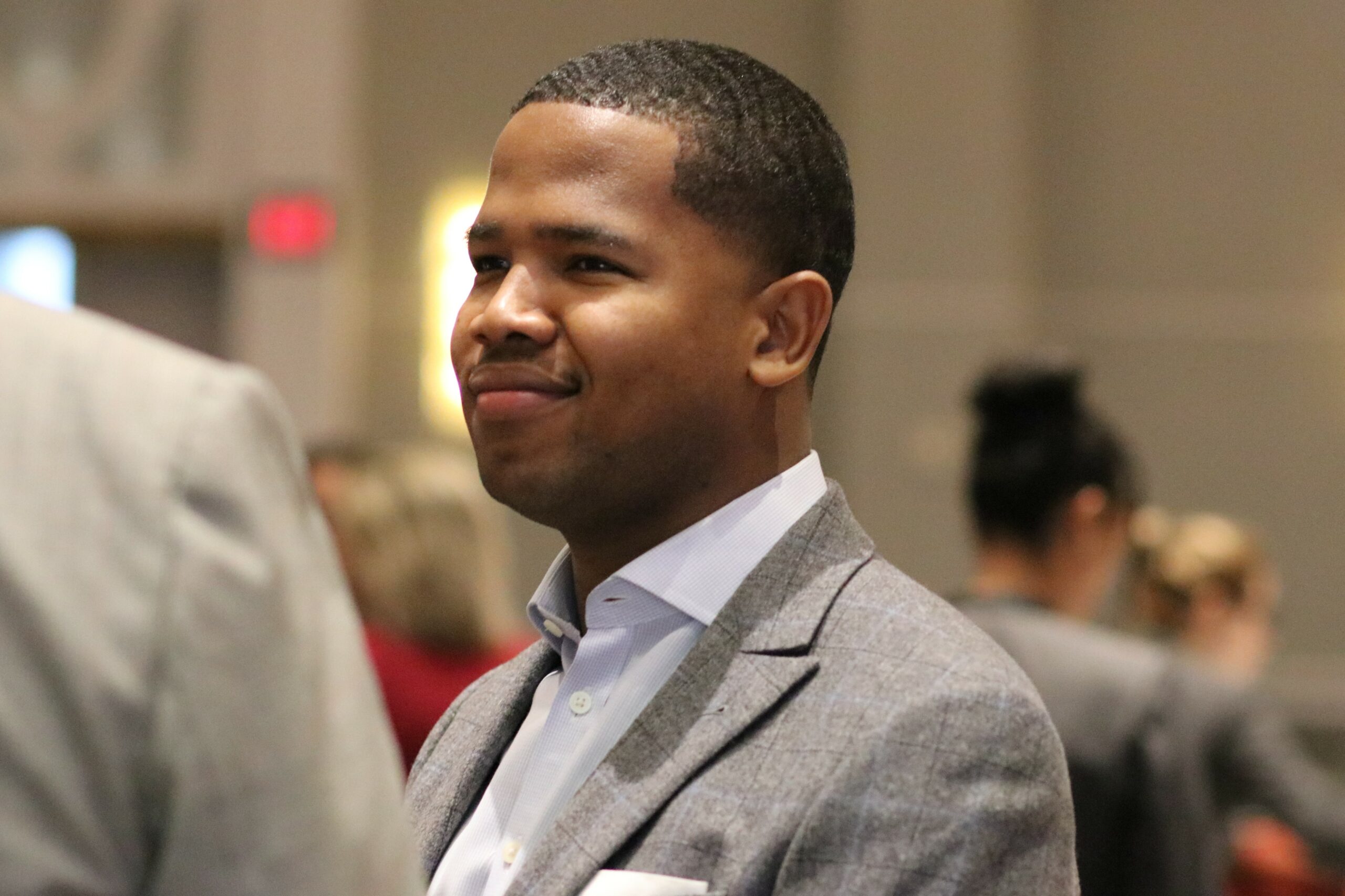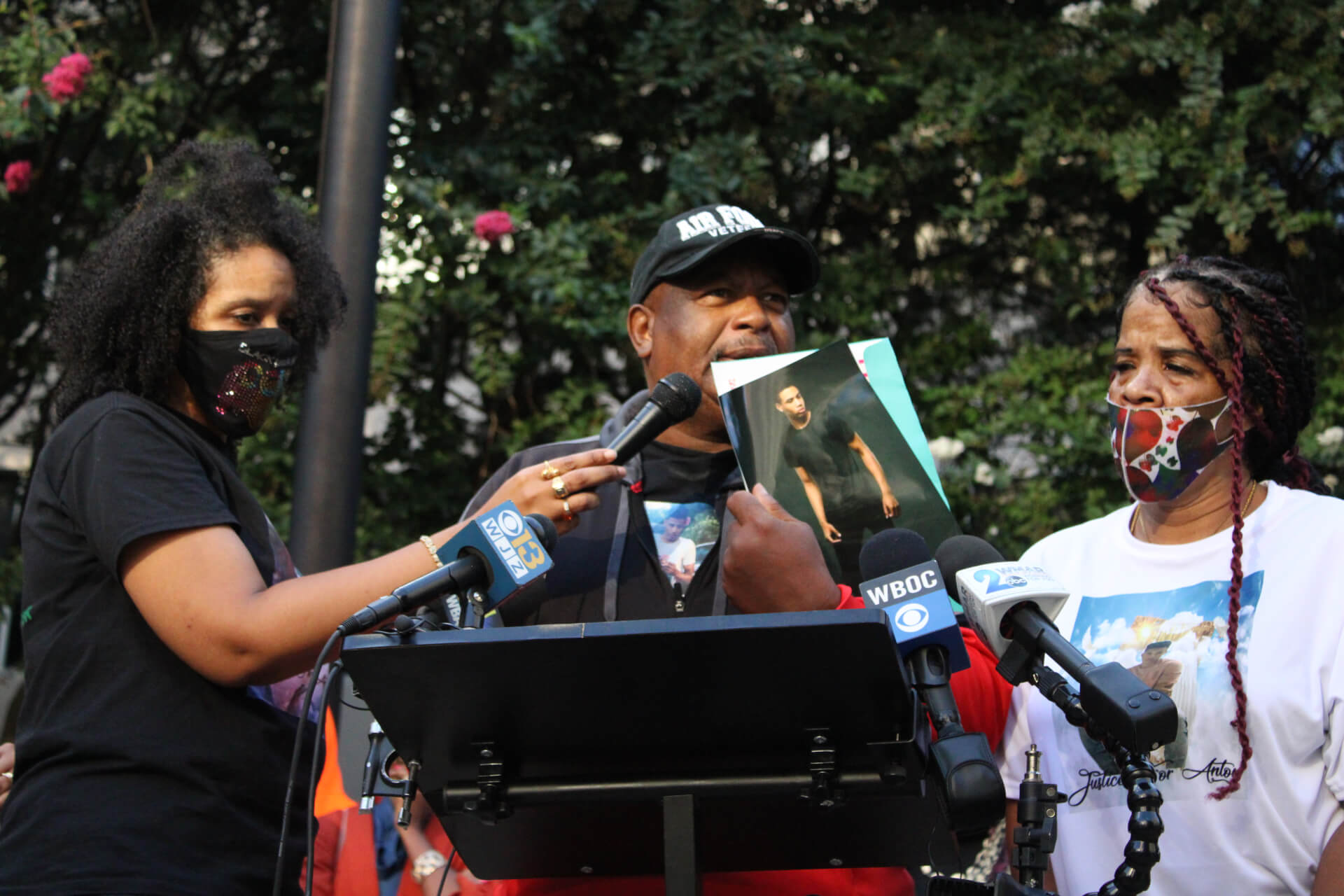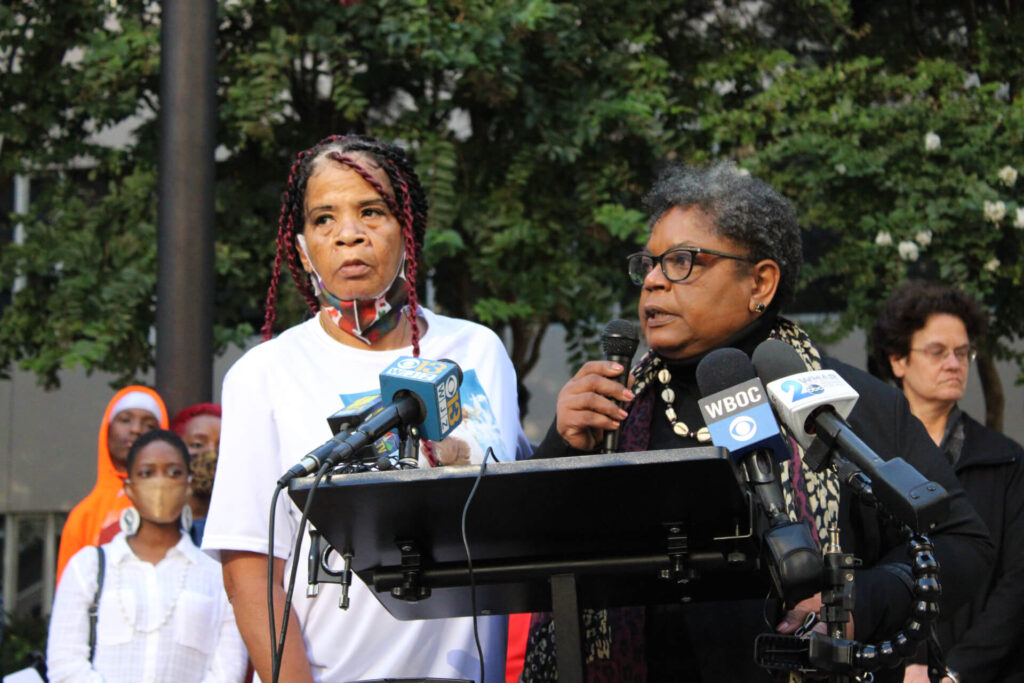State Lawmaker Says Union Leaders Used Strong-Arm Tactics to Thwart Police Reform Legislation

A state lawmaker has accused the leaders of two local unions — the Montgomery County Government Employees Organization Local 1994 (MCGEO) and the Montgomery County Fraternal Order of Police Lodge 35 — of using strong-arm tactics to slow down police reform legislation in Annapolis.
In June, Del. Gabriel Acevero (D-Montgomery), an African American and former Black Lives Matter activist, filed a formal complaint with the National Labor Relations Board claiming he was fired from his job as a union field representative for publicly supporting police reform legislation.
“I’m appalled that a UFCW affiliate with a majority minority membership, would violate a collective bargaining agreement and collude with the FOP to strong-arm an elected official,” Acevero said in an interview.
Acevero’s firing was first reported earlier this month in The New York Times.
Acevero is the sponsor of Anton’s Law, a police transparency bill that he introduced during the past two legislative sessions and plans to introduce again in 2021.
In the latest version, Anton’s Law calls for police investigative files and police disciplinary records to be turned over to complainants alleging misconduct through Maryland’s Public Information Act, altering the Law Enforcement Officers’ Bill of Rights (LEOBR) to allow officials other than sworn law enforcement officers to investigate serious accusations of police misconduct, and stricter use-of-force guidelines for police.
Acevero said he was summoned to a December 2019 meeting by MCGEO President Gino Renne. In an email dated Tuesday, Dec. 17, 2019, Renne told Acevero the president of the local Fraternal Order of Police — an unofficial partner of MCGEO’s — and leaders from the Montgomery County Sheriff’s Office, whose rank and file officers are MCGEO members, would be present.
According to the email, the purpose of the meeting was to discuss concerns law enforcement members had with Acevero over his role as a lawmaker promoting police reform legislation that would undercut the very rights of union workers he represented as a field representative. Renne emphasized a July 12, 2019 letter he received from FOP Lodge 35 President Torrie Cooke following Acevero’s public testimony at a July 2019 Montgomery County Council public hearing on the establishment of a county police advisory forum. At the time, Acevero worked for MCGEO, but he maintains he never represented the union’s law enforcement members.
“I have never represented law enforcement while a field representative with MCGEO,” Acevero said. “The workers/members I’ve represented have all been non-law enforcement.”
The letter cited Acevero’s “inflammatory testimony” where he expressed support for a local bill establishing the police advisory commission and contained accusations that the lawmaker intended to “dismantle the LEOBR.”
“It cannot just happen at the county level, it has to happen at the state level as well, so I welcome the support of this council on bills that we introduce next legislative session to ensure that we’re bringing about the kind of transparency that the community is asking for,” Acevero said during his testimony before the Council. “As some of you may know, I introduced Anton’s Law this legislative session in part because the community and the family was asking for answers in a police involved death but did not get it. The FOP, which historically has and continues to be an opponent in reform legislation [should] not have a say in this commission. This is about communities shaping their police departments.”
‘Direct conflict’
Renne expressed concern over Acevero’s statements.
“Your support of legislation that interferes with our members’ employment rights is in direct conflict with Local 1994’s representational obligations and responsibilities,” Renne’s email stated. “Prior to taking any action in this matter I wish to have a meeting with the FOP, Vice President [Michael] Trigiana/Sheriff Stewards and yourself to explore possible solutions. . . I expect to see you on Thursday.”
According to the email, MCGEO’s relationship with the Lodge 35 Fraternal Order of Police union was of great concern to Renne.
“By making such a statement you obviously undervalued the importance of our partnership with Lodge 35 and failed to take into account the negative impact that your actions could have on our relationship,” the Dec. 17 email said.
The email also said approximately 80 members in the Montgomery County Sheriff’s Office signed a petition protesting Acevero’s support of legislation that would reduce their statutory rights as law enforcement officers. Renne would not, however, provide a copy of the petition when requested by Maryland Matters.
During the meeting, Acevero claimed Renne and others pressured him to drop Anton’s Law.
Official notes taken during the meeting by a union shop steward who was present, which were provided to Maryland Matters, include the following passages:
“Held onto letter from July, hoping things would die down.”
“Torrie Cooke [Lodge 35 FOP president]: LEOBR is a labor document. PIA law protects labor rights as well.”
“Another labor organization representative shouldn’t be pushing anti-labor laws”
“We are part of labor, we support you guys”
Trigiani, representing the Sheriff’s deputies, said to Acevero, “We want to know where you are going with this [and] what your intentions are.”
But none of the notes indicated there was a direct request for Acevero to drop Anton’s Law.
Acevero said he wasn’t interested in backing down from what he perceived as pressure to change, water down or abandon his legislation.
“It did not work because I pushed back and I refused,” Acevero said. “In no way [does the legislation] impact workers of their collective bargaining rights. This is about rooting out corrupt and racists cops and repealing the law that provides procedural protection to corrupt cops, who in many instances have a history and a record of use of force complaints that haven’t been addressed.”
Acevero’s bill is named after Anton Black, an African American teen from Maryland’s Eastern Shore who died in police custody in 2018 following a pursuit by three white law enforcement officers and a white civilian. Black died after being handcuffed and shackled in front of his mother on a walkway leading to her home in Greensboro.
During the meeting Acevero said he supported transparency and accountability for lawmakers, but as far as he was concerned, there was no accountability in law enforcement.
Thirteen minutes after the meeting started, Acevero was fired.
A union official requesting anonymity said Acevero’s firing coincided with the last day of the union’s work season before a long holiday break and just before Acevero would return to Annapolis to begin work on his legislation for the 2020 General Assembly session.
Renne pushes back
In an extensive interview last week, Renne fiercely denied accusations that he, or anyone else present in the meeting, strong-armed Acevero or asked him to drop his legislation.
“It’s a bold-face lie,” Renne said.
Instead, the union president said the meeting was a “personnel” matter. He said Acevero had previous employment infractions.
“It had to do directly with the levels of his performance as a field representative,” Renne said. “Had nothing to do with legislation. His legislation wasn’t even introduced at that time.
“I didn’t even weigh in on Anton’s Law,” Renne said. “It wasn’t my arena to engage in. It died in Annapolis. My one concern is … his being part of anything that strips our members of their due process rights, which I as a president of a union that represents members, that’s one of my primary obligations. We don’t get to pick and choose which laws we represent our members under. Those laws are promulgated either in the legislative body or by policy through the employers we represent.
“If you want to discuss what specific aspects of those rights you think are too broad, that’s a fair conversation,” Renne said. “If you want to specifically discuss replacing a set of rights with an alternative set of rights, fair conversation. That’s exactly what we were hoping to get to in that meeting, but he never let it get there.
“I set the table for what I was hoping would be a collaborative meeting,” Renne said. “I was offering him an opportunity to be a leader on this issue. I told him, ‘you’re in a unique place because of your seat at the table with labor to make some progress with our support, with police support.'”
Instead, Renne said, Acevero chose to go on the defensive.
“He chose to be unprofessional,” Renne said. “…I didn’t make that decision for him. He started calling police officers corrupt … and unions that represents police, including his own, as being nothing more than organizations that protect corrupt police.”
Renne went on the say that as president of the union, he has “enormous authority” to hire and fire as he sees fit. The outburst, he said, was the last straw.
“I asked him at least twice to disengage from that and let’s get back to talk about how we can move forward together, and he stands up and points his finger in my face, continues to be boisterous and disrespectful, so I said you’re fired,” Renne recalled. “That’s it.”
Renne asserted that Acevero had been talked to multiple times in the past about his performance as a union official — something Acevero vehemently denies.
Settlement offer rejected
Acevero provided a settlement document from MCGEO agreeing to pay him “severance” pay for approximately $35,000. But Acevero turned down the offer because it included a confidentiality clause.
“I received a settlement offer from Gino that included an NDA and I rejected it because I can’t be bought,” Acevero said. “This issue is bigger than me, it’s about our calls for transparency and an end to police violence. And there’s no price worthy of my silence.”
When asked if Acevero’s proposed legislation would affect sheriffs or MCGEO’s other sworn members of law enforcement, such as the approximately 1,100 public safety officers in the Department of Corrections, Renne acknowledged that was the problem.
“What’s the scope?” Renne responded. “It’s not clear. Is it restricted to sworn police? Does it include sheriffs? Maryland is a mixed bag. Sheriffs are state constitutional officers.
“Police are governed by local jurisdictions. God knows you’ve got tens of thousands of public safety employees — corrections, probation and parole, etc., etc. Are those folks included? That’s the whole point. You have to sit down and kind of figure out what we’re trying to do. Whose rights are going to be impacted because FOP is not the exclusive police union, there are others. It’s a big issue.”
Glynis Kazanjian is a freelance writer. She can be reached at [email protected].



 Creative Commons Attribution
Creative Commons Attribution